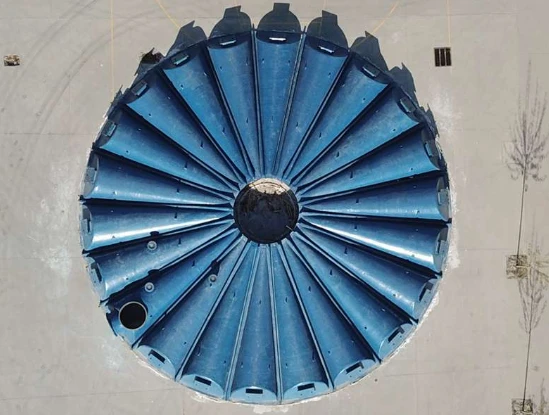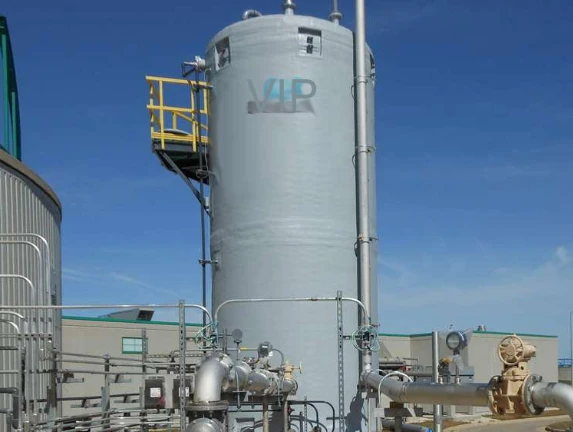
-
 Afrikaans
Afrikaans -
 Albanian
Albanian -
 Amharic
Amharic -
 Arabic
Arabic -
 Armenian
Armenian -
 Azerbaijani
Azerbaijani -
 Basque
Basque -
 Belarusian
Belarusian -
 Bengali
Bengali -
 Bosnian
Bosnian -
 Bulgarian
Bulgarian -
 Catalan
Catalan -
 Cebuano
Cebuano -
 China
China -
 China (Taiwan)
China (Taiwan) -
 Corsican
Corsican -
 Croatian
Croatian -
 Czech
Czech -
 Danish
Danish -
 Dutch
Dutch -
 English
English -
 Esperanto
Esperanto -
 Estonian
Estonian -
 Finnish
Finnish -
 French
French -
 Frisian
Frisian -
 Galician
Galician -
 Georgian
Georgian -
 German
German -
 Greek
Greek -
 Gujarati
Gujarati -
 Haitian Creole
Haitian Creole -
 hausa
hausa -
 hawaiian
hawaiian -
 Hebrew
Hebrew -
 Hindi
Hindi -
 Miao
Miao -
 Hungarian
Hungarian -
 Icelandic
Icelandic -
 igbo
igbo -
 Indonesian
Indonesian -
 irish
irish -
 Italian
Italian -
 Japanese
Japanese -
 Javanese
Javanese -
 Kannada
Kannada -
 kazakh
kazakh -
 Khmer
Khmer -
 Rwandese
Rwandese -
 Korean
Korean -
 Kurdish
Kurdish -
 Kyrgyz
Kyrgyz -
 Lao
Lao -
 Latin
Latin -
 Latvian
Latvian -
 Lithuanian
Lithuanian -
 Luxembourgish
Luxembourgish -
 Macedonian
Macedonian -
 Malgashi
Malgashi -
 Malay
Malay -
 Malayalam
Malayalam -
 Maltese
Maltese -
 Maori
Maori -
 Marathi
Marathi -
 Mongolian
Mongolian -
 Myanmar
Myanmar -
 Nepali
Nepali -
 Norwegian
Norwegian -
 Norwegian
Norwegian -
 Occitan
Occitan -
 Pashto
Pashto -
 Persian
Persian -
 Polish
Polish -
 Portuguese
Portuguese -
 Punjabi
Punjabi -
 Romanian
Romanian -
 Russian
Russian -
 Samoan
Samoan -
 Scottish Gaelic
Scottish Gaelic -
 Serbian
Serbian -
 Sesotho
Sesotho -
 Shona
Shona -
 Sindhi
Sindhi -
 Sinhala
Sinhala -
 Slovak
Slovak -
 Slovenian
Slovenian -
 Somali
Somali -
 Spanish
Spanish -
 Sundanese
Sundanese -
 Swahili
Swahili -
 Swedish
Swedish -
 Tagalog
Tagalog -
 Tajik
Tajik -
 Tamil
Tamil -
 Tatar
Tatar -
 Telugu
Telugu -
 Thai
Thai -
 Turkish
Turkish -
 Turkmen
Turkmen -
 Ukrainian
Ukrainian -
 Urdu
Urdu -
 Uighur
Uighur -
 Uzbek
Uzbek -
 Vietnamese
Vietnamese -
 Welsh
Welsh -
 Bantu
Bantu -
 Yiddish
Yiddish -
 Yoruba
Yoruba -
 Zulu
Zulu
Durable Rectangular Fiberglass Tanks Corrosion-Resistant
- Understanding the Core Benefits of Rectangular Fiberglass Tanks
- Technical Superiority: Performance Metrics That Matter
- Manufacturer Comparison: Key Specifications and Capabilities
- Custom Engineering Possibilities for Specialized Applications
- Industrial Deployment: Sector-Specific Installation Case Studies
- Selection Criteria for Optimal Tank Performance
- Future Innovations in Rectangular Fiberglass Tanks Technology

(rectangular fiberglass tanks)
Exploring Rectangular Fiberglass Tanks for Modern Industrial Needs
Rectangular fiberglass tanks represent a critical innovation in fluid containment solutions, combining structural precision with material science advancements. Unlike cylindrical alternatives, these tanks maximize space utilization - achieving up to 30% more storage capacity per square foot in facility footprints. The corrosion-resistant nature of fiberglass reinforced plastic (FRP) makes rectangular vessels indispensable across chemical processing, water treatment, and manufacturing sectors where traditional materials fail prematurely. With lifespans exceeding 25 years, they reduce replacement cycles while maintaining dimensional stability under full loads.
Technical Superiority Unpacked
Fiberglass construction delivers measurable advantages over steel or polyethylene competitors. Testing data reveals tensile strengths of 12,000-30,000 psi depending on resin matrix composition, with deflection rates below 0.5% at maximum capacity. The non-porous surface maintains 99.99% impermeability against aggressive substances like sulfuric acid at concentrations up to 40%. Key performance differentiators include:
- Thermal Stability: Maintains structural integrity from -60°F to 180°F without distortion
- Weight Efficiency: 70% lighter than equivalent steel tanks, reducing foundation costs
- Zero Maintenance: UV-stabilized gel coats eliminate repainting requirements
- Hygienic Properties: NSF 61-certified formulations for potable water applications
Manufacturer Comparison Analysis
| Manufacturer | Max Capacity (Gallons) | Standard Wall Thickness | Chemical Resistance Rating | Lead Time (Weeks) |
|---|---|---|---|---|
| Containment Solutions Inc | 15,000 | 0.38" | Grade A | 6-8 |
| FRP Tanks Unlimited | 8,500 | 0.32" | Grade B+ | 4-5 |
| PolyPro Tank Systems | 20,000 | 0.45" | Grade A+ | 10-12 |
Note: Chemical resistance graded per ASTM C581 standards
Custom Engineering Capabilities
Advanced manufacturers accommodate specialized requirements through modular design approaches. Typical modifications include:
- Multi-Chamber Configurations: Segmented units with separate 20,000-gallon compartments
- Embedded Sensor Ports: Pre-installed NPT fittings for pH/level monitoring systems
- Baffle Integration: Anti-turbulence partitions reducing fluid sloshing by 65%
- Accessory Integration: Custom manways, ladder systems, and overflow prevention mechanisms
Recent innovations enable dielectric isolation barriers for electrolysis applications and FDA-compliant vinyl ester liners for food processing installations.
Industrial Application Case Studies
Electroplating Facility Upgrade: Michigan-based metal finer replaced six failing steel tanks with FRP rectangular units, eliminating $27,000/annual maintenance while tripling bath solution longevity. The installation features:
- 15' x 8' x 6' chromium containment vessels
- Integrated secondary containment troughs
- PTFE-lined fluid transfer channels
Municipal Water Treatment: New Jersey municipality deployed custom rectangular fiberglass tanks
for chlorine contact, achieving:
- 0% corrosion after 7 years of continuous operation
- 40% reduction in disinfection byproducts
- 25-year warranty coverage
Critical Selection Criteria
Evaluating rectangular tanks requires analyzing four critical parameters:
- Resin Formulation: Isophthalic polyester for general chemicals vs. vinyl ester for oxidizers
- Lamination Quality: Minimum 35% glass content with secondary veil layer
- Structural Reinforcement: Exterior ribbing patterns resisting 150 psf soil loads
- Certification Compliance: ASME RTP-1 registration for pressure vessels
Third-party mill certifications should verify UV stabilizers and fire-retardant additives where applicable.
Advancements in Rectangular Tanks Technology
The next generation of rectangular fiberglass tanks incorporates smart monitoring systems with IoT-enabled sensors that track:
- Real-time wall stress through embedded fiber optic grids
- Automatic leak detection at 0.5 gallons/hour sensitivity
- Predictive maintenance algorithms reducing downtime by 40%
Manufacturers are developing nanocomposite formulations increasing structural performance by 200% while maintaining the corrosion resistance that makes rectangular tanks made of fiberglass material essential for industrial infrastructure. These innovations position FRP as the material of choice for sustainable fluid management solutions.

(rectangular fiberglass tanks)
FAQS on rectangular fiberglass tanks
Q: What are the main advantages of rectangular fiberglass tanks?
A: Rectangular fiberglass tanks offer exceptional corrosion resistance against chemicals and harsh environments. They provide structural rigidity while being significantly lighter than steel alternatives. Their non-porous surface also prevents bacterial growth and simplifies cleaning.
Q: How do rectangular fiberglass tanks compare to plastic rectangular tanks?
A: Fiberglass rectangular tanks outperform plastic tanks in strength, temperature tolerance, and UV resistance. They won't warp or degrade under sun exposure like polyethylene tanks. Installation is easier due to their rigid, pre-formed structure maintaining exact dimensions.
Q: What applications typically use rectangular tanks made of fiberglass material?
A: Rectangular fiberglass tanks are ideal for industrial water treatment, chemical storage, and aquaculture systems. Their shape maximizes floor space efficiency in facilities, while the material handles corrosive additives safely. Common uses include dosing stations, RO systems, and livewells.
Q: Can rectangular fiberglass tanks be customized for specific projects?
A: Yes, manufacturers can customize dimensions, nozzle placements, and internal baffles. Options include reinforced bases for uneven surfaces or specialized resin formulations for extreme pH levels. Color choices and access ladder integrations are also common custom features.
Q: What maintenance do rectangular fiberglass tanks require?
A: These tanks require minimal maintenance thanks to fiberglass's inert properties. Periodic visual inspections for surface damage and routine rinsing with non-abrasive cleaners suffice. Unlike metal tanks, they never need rust treatments or protective coatings throughout their 20+ year lifespan.
Latest news
-
Premium GRP Playground Equipment Durable & Safe FunNewsJun.06,2025
-
Premium FRP Storage Tanks - Corrosion Proof Acid ContainmentNewsJun.06,2025
-
FRP Absorber Industrial Noise Control SolutionNewsJun.06,2025
-
Efficient FRP Demister Superior Fog Elimination GearNewsJun.05,2025
-
Optimize Data Transfer with RTRP Protocol for Max EfficiencyNewsJun.05,2025
-
Innovative Gold Mining Bits for Enhanced Drilling EfficiencyNewsJun.05,2025









